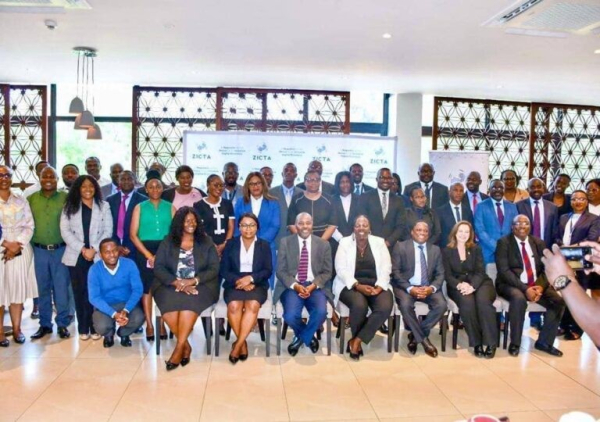Written by: Hikmatu Bilali
As digital adoption rises across Africa, so does cybercrime, threatening national security. Tackling these threats is essential for protecting digital economies and fostering sustainable growth.
Zambia announced on November 19 that it is strengthening its defenses against cybercrime through a partnership with the International Telecommunication Union (ITU). This collaboration aims to enhance digital security by equipping prosecutors and law enforcement with advanced skills to tackle emerging cyber threats.
Technology and Science Minister Felix Mutati, speaking through his representative, director of communication and digital technologies, Milner Makuni emphasized that the escalating cyber threats demand continuous professional training and collaboration. Equipping law enforcement with skills in digital forensics and AI-driven tools for threat detection will create a safer cyber environment for citizens and businesses alike.
The event, hosted in collaboration with the International Telecommunication Union (ITU) and the Zambia Information and Communications Technology Authority (ZICTA), highlighted the urgency of addressing rising cybercrime incidents.
Key initiatives announced include training and reskilling programs to equip prosecutors and stakeholders with expertise in digital forensics, electronic evidence management, and predictive analysis technologies. Legislative enhancements are also underway, with ongoing revisions to the Cyber Security and Cyber Crimes Act to ensure a robust and adaptive legal framework.
ITU representative Annrita Ssemboga praised Zambia’s proactive role in the Global Digital Compact and commended its efforts to advance cybersecurity on the continent. ZICTA Acting Director-General Engineer Collins Mbulo highlighted the growing scope of digital crimes, urging regulators and law enforcement to remain vigilant.
In 2021, the Zambia Computer Incident Response Team (ZM-CIRT) recorded over 10.7 million cyberattacks, including mobile money scams, social media hijacking, and fraudulent online schemes. Between 2020 and the second quarter of 2022, the financial sector lost over K150 million, with K6 million attributed to pyramid schemes. These figures underscore the growing threat of cybercrime in Zambia.
This initiative strengthens Zambia’s digital resilience, fostering economic opportunities while protecting its citizens and businesses from escalating cyber threats. By aligning with global standards and leveraging advanced technology, Zambia is setting a benchmark for cybersecurity in the region, essential for long-term socio-economic stability.
Hikmatu Bilali






